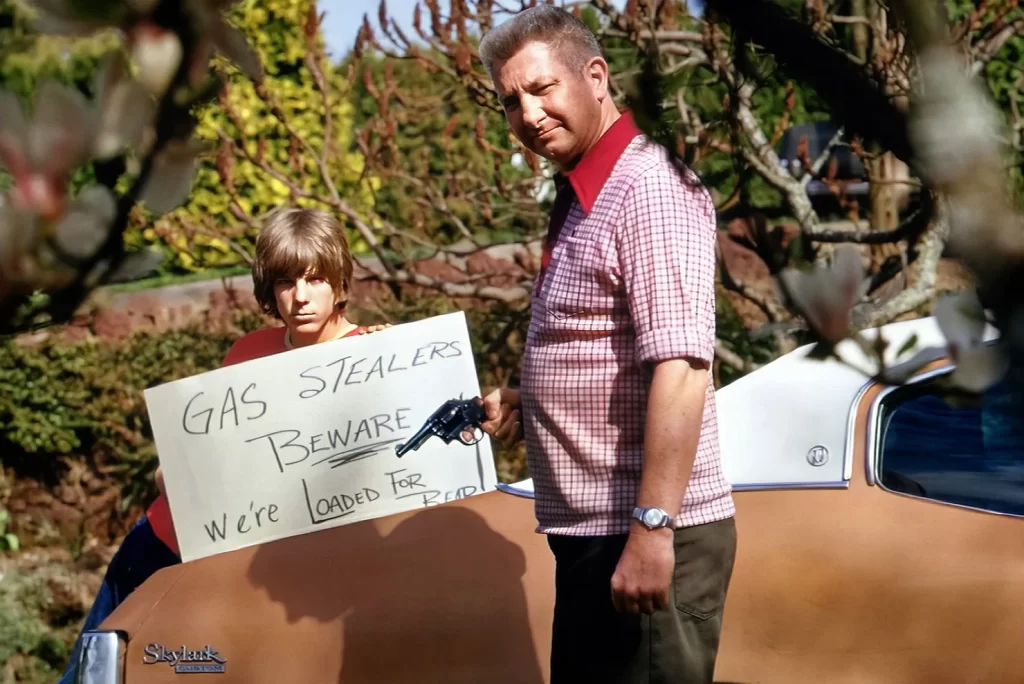Let me set the scene: you are a caveman emerging from your shelter as the sun rises and you look around and notice that your daughter is missing. You wake the rest of the clan and everyone starts looking for her frantically. Hours pass (although as a caveman all you know is that the sun is much higher up in the sky than it was when you first could not find your daughter) and as your desperation reaches its peak, you see your daughter walking towards the encampment looking disheveled (for a young cave girl). You ask her what happened and she proceeds to tell you a harrowing tale of some strange men who snuck into the shelter and took her in the middle of the night and mistreated her very badly before they let her go with instructions to tell the chieftain she will be a part of these strange men’s clan now.
Your desperation has turned into a deep fury. You ask your daughter to describe these men in as much detail as she can and you ask her to show you where she came from. You gather a posse of able-bodied cavemen armed with spears and stones and you head over to the wrongdoers to defend your daughter’s honor and make plain that such encroachments will never be tolerated. You go to send a message, not only to the men who took and harmed your daughter but also to any other men in the future who might get the idea of trying something like this. Terrible violence ensues and not everyone survives to come back to camp to tell of their day around the fire.
That night, the survivors of the offending clan discuss those they lost in the fighting that day and decide that this cannot stand and make plans to attack your camp the next day. More blood gets shed the following day and the violence continues until only one clan is left, although much smaller in number.
This sad and completely made-up account of a prehistoric feud is meant to be an illustration of what happens when people have no recourse to right the wrongs committed upon them but to take matters into their own hands. Human history and literature are full of examples of such stories. Homer has the Trojan War begin because the Greeks believed that Paris, the prince of Troy, had stolen Helen, Greek King Menelaus’ daughter. The famous shootout in the OK Corral was one of several vendetta killings that resulted from a feud between the Earp and Clanton families in Tombstone, AZ that started in the 1880s over a perceived insult.
The concept of a blood feud is so old and established that Shakespeare’s arguably most famous play, “Romeo and Juliet” involves such a feud between the Montague and Capulet families and he does not even bother to explain why the families are feuding. It is enough to know that they are feuding and the ultimate tragedy of the play is a direct result of the feud.
It is a simple truth of our time as a species that people sometimes hurt other people or are perceived to hurt other people. It is equally true that when people feel they have been wronged, they want to do something about it. They want redress. They want to be made whole. They want to never be wronged that way again. They want others to not be wronged that way. In short, they want justice.
For a long time, if a person wanted justice, it was up to them both to define what justice meant and to seek it for themselves, because no one else was interested in or committed to seeking that justice for them. This kind of justice is what is known as vigilante justice.
As the fictionalized account I started this post with shows, a predictable and undesirable side-effect of the pursuit of vigilante justice is a lot more harm. A “system” of vigilante justice (I use quotes there because the whole point of vigilante justice is that it is outside of a system) is a system of “might makes right.” Whoever is the last one standing gets to claim that they were right in the dispute. Eventually, whoever is the strongest gets to oppress those who are weaker and set the rules. This is basically how warlords emerge and eventually amass enough subjects to call themselves kings. Then there are feuds among kings that we know as wars. Think War of the Roses or the 100 Years’ War.
In the ancient world, there was an awareness that vigilante justice did more harm to the community than good. This led to efforts to create alternatives– to create systems of justice. The very first codified system of laws that we know of is the Code of Hammurabi, the King of Babylon between 1792 and 1758 BCE. Although Hammurabi’s Code was a huge innovation in the ancient world, instead of eliminating vigilante justice, it codified it with what the Romans referred to as Lex talionis, or what is referred to in the Bible as “an eye for an eye.” However, as is often attributed to Gandhi, although there is no evidence that Gandhi ever actually said, “An eye for an eye will make the whole world blind.”
Let’s fast forward to the 18th century when a bunch of slave-owning white men are trying to establish a country that is breaking from the monarchy. The founders of the United States were students of history, philosophy, and law. They understood that if a legal system is weak, vigilante justice flourishes. They understood that the country they were starting needed to

